The Snake Catchers Who Handle Australia’s Most Venomous Home Invaders
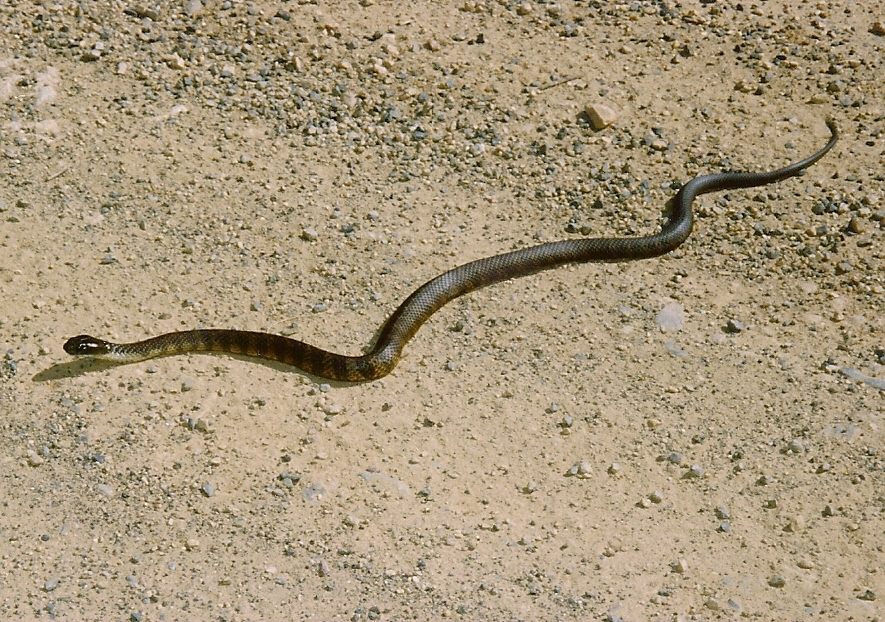
An eastern brown snake, one of Australia’s many highly venomous slitherers. (Photo: Peter Woodard/Wikipedia)
Reports of snakes unexpectedly slithering into homes and freaking out their inhabitants are pretty common. But in early January a particularly nightmare-worthy incident went down in Adelaide, South Australia, when a woman went to fetch a cold drink from her fridge and spotted a potentially lethal eastern brown snake hiding beneath the appliance.
The species is the second most venomous terrestrial snake in the world. Accordingly, the shocked fridge owner called in the services of Rolly Burrell, professional snake catcher, who engaged in some careful “fauna relocation,” as it’s known in the industry. The video below provides some highlights from the process, including Burrell picking up the deadly snake with his bare hands while onlookers try not to scream.
Burrell is one of many on-call snake catchers around Australia. The country is home to five of the top six most venomous land snakes in the world, but its strict conservation laws make it illegal to kill a native snake, with the penalty for committing such an offense being a $10,000 fine. When venomous snakes turn up in a backyard, barn, or—heaven forbid—bathroom, it’s time to call in a relocation specialist.
Marcus Cosentino is just such a specialist. As the owner of Slithers & Slides, a snake removal service based in Perth, Western Australia, he is on call 24/7 for any domestic serpent situations that may arise.
The state of Western Australia has an unusual set-up when it comes to snake removal. ”Ten years ago there was no one offering this service,” says Cosentino, “so they had to turn to volunteers.” The Department of Parks and Wildlife built a list of volunteer reptile removers—“just people who were enthusiastic, who had some experience with snakes and were willing to go out in their spare time.”
Cosentino estimates there are now over 230 such volunteers, all of whom have taken a half-day course in reptile relocation. Western Australians who spot a snake on their property are welcome to request the services of one of these unpaid people via a centralized phone line. The problem with this arrangement, says Cosentino, is that most volunteers work full-time and have weekend commitments, meaning that by the time they are available for snake hunting, the snake may have disappeared. Enter the commercial snake catchers.
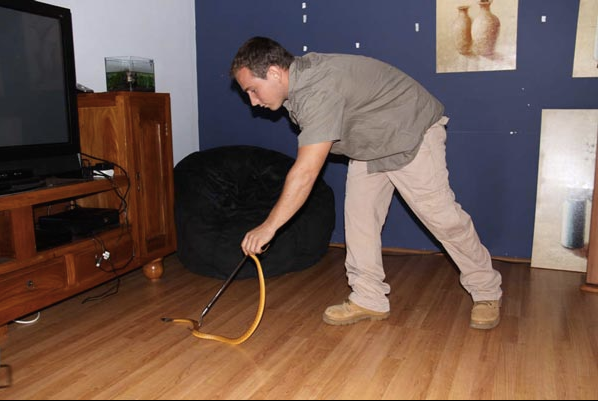
Marcus Cosentino relocating a venomous western brown snake that slithered into a home. (Photo: Slithers & Slides)
The number of calls to Slithers & Slides depends on the time of year—snakes behavior being affected by the heat, cold, and rain—but Consentino receives anywhere from zero to seven snake removal requests a day. Many of these involve confined spaces and otherwise tricky spots. “I’ve pulled apart air conditioners, I’ve crawled my way under people’s back decking, I’ve been up in roofs,” he says.
Sometimes, if the resident has lost sight of the snake, the search ends up being fruitless. Other times a snake will shoot out from its hiding spot and blindside all in attendance. “I’ve had three people watching one bush and the snake’s gotten past all of them,” Consentino says. He got bitten by a tiger snake once, but it was a “dry bite,” and did not inject venom. (That’s very rare—“the toxicologist at our main hospital hadn’t encountered it before.”)
Despite the danger of dealing with venomous fauna on a daily basis, Consentino stresses that snakes aren’t out to get people. When they turn up on your turf, they’re probably just looking for warmth, a cool surface, or a tasty mouse.
That was the case with the eastern brown snake found under the fridge in Adelaide, who just wanted a warm, humid place to rest her pregnant belly. Yes: she was full of fertile eggs, and laid a baker’s dozen shortly after being captured.
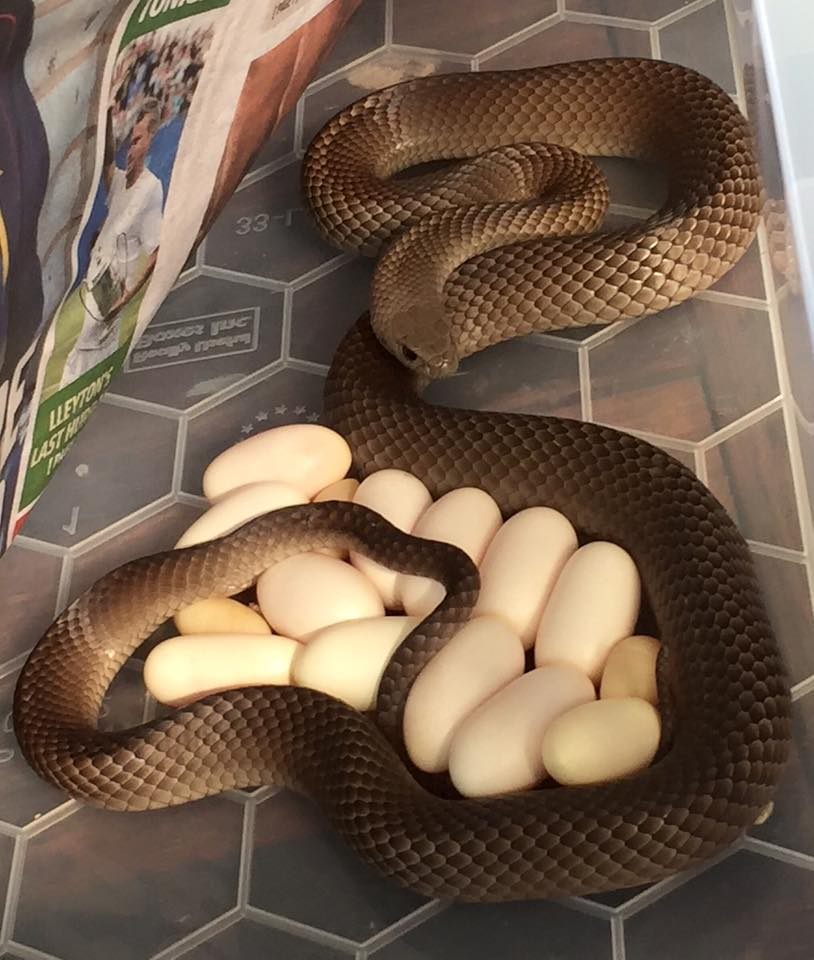
Fridge snake and the next generation. (Photo: Snake Catchers Adelaide)
Rolly Burrell, the snake-catching star of that YouTube video, told us that he’s feeding up the mother snake and incubating her eggs. When the baby snakes hatch he’ll take them all into the bushland and release them back into the wild where they belong.



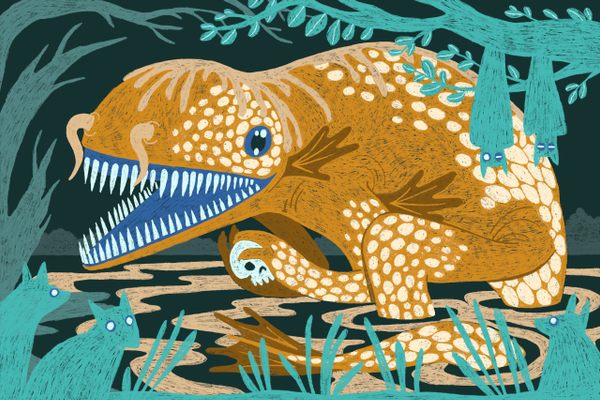
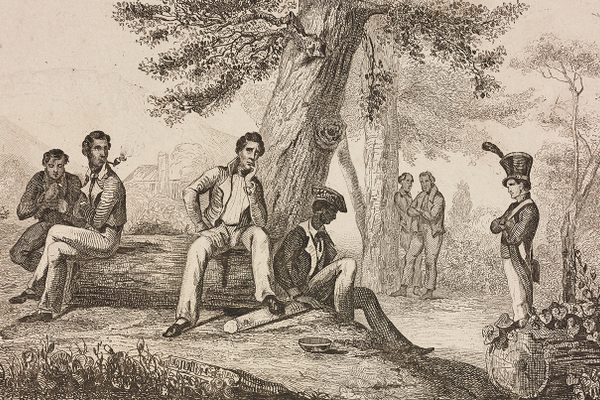


Follow us on Twitter to get the latest on the world's hidden wonders.
Like us on Facebook to get the latest on the world's hidden wonders.
Follow us on Twitter Like us on Facebook